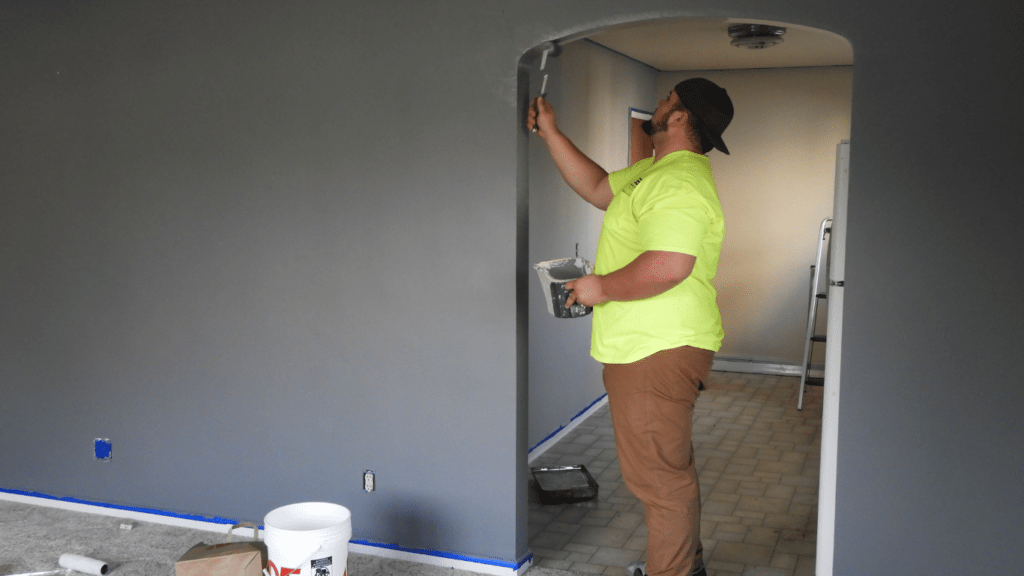Understanding Your Renovation Needs
Renovating can be a significant investment, so it’s crucial to clearly understand your needs before hiring a contractor. This ensures the changes align with your vision.
Defining Your Project Scope
Identify specific aspects of the home you want to improve. For example, consider whether you’re focusing on the kitchen, bathroom, or an entire floor. List the required changes, such as new fixtures, wall removals, or additional electrical outlets. Prioritize elements, emphasizing must-haves first. Clear project scope helps avoid misunderstandings with contractors and sets realistic expectations for both parties.
Setting a Budget
Determine a practical budget by evaluating your finances. Research average costs for similar renovations in your area for a realistic estimate. Allocate funds to different aspects, like materials, labor, and unexpected expenses. Ensure budget flexibility to accommodate unforeseen needs, avoiding project delays and stress.
Researching Potential Contractors
Choosing the right contractor involves thorough research. The first step is knowing where to find reliable options and how to vet them effectively.
Where to Find Contractors
I start my search by leveraging multiple sources:
- Online Platforms: Websites like Angie’s List, HomeAdvisor, and Houzz list qualified contractors, including reviews and ratings.
- Local Directories: Community boards and local business directories often feature reputable contractors.
- Personal Recommendations: Friends and family who’ve completed renovations can provide trusted referrals.
- Social Media: Groups and forums on platforms like Facebook or Nextdoor can offer local insights and recommendations.
Using a combination of these sources increases the chance of finding a reputable contractor.
Checking Credentials and Experience
Verifying credentials and assessing experience is crucial:
- Licensing: Contractors need proper licensing as per state regulations. I verify this through the state licensing board’s website.
- Insurance: Checking for adequate insurance coverage, including liability and worker’s compensation, protects against unforeseen issues.
- Portfolio: I review past work to gauge quality and style compatibility. Reputable contractors usually showcase this on their website or upon request.
- Reviews and References: Client testimonials and direct references from past clients provide insights into reliability and workmanship. It’s advisable to speak with a few references to confirm the contractor’s consistency and standards.
Thorough credential and experience checks help ensure you’re hiring a qualified professional.
Evaluating Contractor Proposals

To make an informed decision when choosing a contractor, evaluating their proposals is crucial. Scrutinize each proposal meticulously to ensure it meets your project requirements.
Requesting and Comparing Quotes
Reach out to at least three contractors and request detailed quotes. Each quote should itemize costs, including materials, labor, and any other expenses. Make sure to compare these quotes side-by-side, focusing on quality as well as cost. For example, a quote including high-quality materials may seem expensive but could offer better long-term value. Also, review timeframes for project completion to see any variations.
Understanding Contract Details
Carefully examine the contract each contractor provides. Ensure it includes specifics like the scope of work, start and completion dates, payment schedule, and warranty details. Confirm that any verbal agreements made during discussions are documented. Understand the terms of potential changes or additional costs to anticipate any adjustments. This attention helps avoid misunderstandings and ensures a smooth project progression.
Conducting Interviews and Assessments
Evaluating potential contractors through interviews and assessments helps identify the best fit for my home renovation project.
Key Questions to Ask Contractors
When I interview contractors, I ask specific questions to gauge their expertise and reliability. For example:
- Experience: “How long have you been in business?”
- Past Projects: “Can you provide references from similar renovations?”
- Licensing: “Do you possess the required licenses for this project?”
- Insurance: “Do you have insurance to cover potential damages or accidents?”
- Timeline: “What is your estimated timeline for this project?”
- Cost Estimate: “Can you provide a detailed quote specifying material, labor, and other costs?”
- Subcontractors: “Do you use subcontractors, and if so, are they vetted and insured?”
These queries ensure I choose a contractor with the right background and readiness for my project.
Assessing Communication and Trust
Effective communication and trust are vital for a successful renovation. During the interview, I:
- Gauge Responsiveness: Evaluate how promptly the contractor replies to my emails and calls.
- Clarify Communication Style: Notice whether the contractor explains things clearly and listens to my concerns.
- Assess Transparency: Look for openness in discussing potential challenges, delays, and solutions.
By focusing on these aspects, I ensure the contractor understands my vision and will maintain an open line of communication throughout the project.
Making the Final Decision
After collecting and comparing quotes, it’s time to make the final decision. This crucial step involves reviewing references and ensuring all agreements are in writing.
Reviewing References and Past Work
I prioritize reviewing references and past work to ensure I choose the right contractor. Prospective contractors should provide a list of past clients who can vouch for their work quality, timeliness, and professionalism.
- Contact References: Ask past clients about their satisfaction, communication experience, and any issues they encountered.
- Examine Portfolios: Check portfolios for similar projects, noting the quality of materials, design, and craftsmanship.
- Visit Past Projects: If possible, I visit some completed projects to get a firsthand look at the contractor’s work.
The Importance of Written Agreements
Written agreements protect my interests and create clear expectations for both parties. Essential components include:
- Scope of Work: Detailed descriptions of tasks, materials, and project phases.
- Timeline: Clear start and end dates, including milestones and deadlines for key phases.
- Payment Terms: Payment schedule, deposit requirements, and final payment conditions.
- Warranty Information: Coverage for workmanship and materials, ensuring any defects are addressed promptly.
Written agreements reduce misunderstandings and ensure a smooth renovation process.



 Betsylie Sheetsin – Home Renovation Expert
Betsylie Sheetsin serves as the Home Renovation Expert at Castle Shelf House, specializing in giving practical advice for both small and large-scale home improvements. With years of experience in construction and renovation, Betsylie understands the importance of blending durability with design. Her insights into home renovation projects, along with expert advice on the latest materials and techniques, empower homeowners to tackle even the most ambitious projects confidently.
Betsylie Sheetsin – Home Renovation Expert
Betsylie Sheetsin serves as the Home Renovation Expert at Castle Shelf House, specializing in giving practical advice for both small and large-scale home improvements. With years of experience in construction and renovation, Betsylie understands the importance of blending durability with design. Her insights into home renovation projects, along with expert advice on the latest materials and techniques, empower homeowners to tackle even the most ambitious projects confidently.
